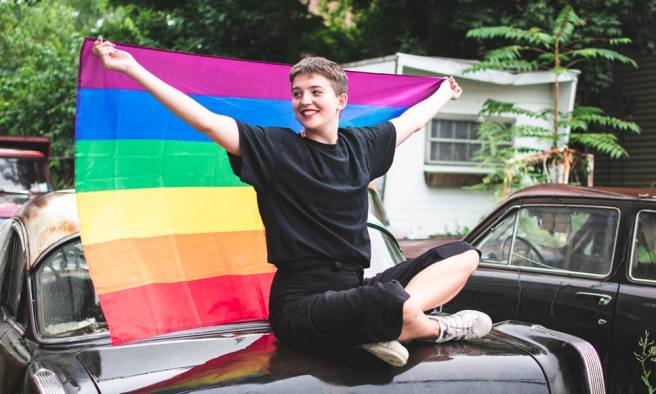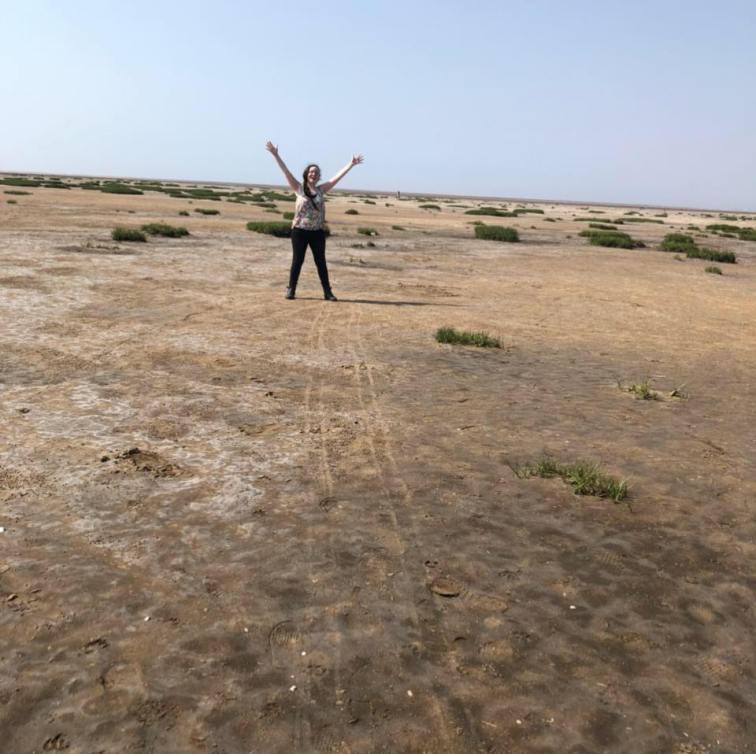Your Research. Your Life. Your Story.
A magnetic community of researchers bound by their stories
Every researcher has a story. What’s yours?
Why LGBTSTEM Day matters to me

Today is the first International Day of LGBTQ+ People in Science, Technology, Engineering and Mathematics. Usually, as a certified grumpy bisexual, I can be quite cynical that these things won’t be enough — that someone will reluctantly promote the day, consider it sufficient appeasement, and then go right back to complaining about how gay people just want to shove their lifestyle down everyone’s throats (As a certified grumpy bisexual, I’m also used to companies painting everything in rainbow colours for one month and then expecting it to somehow compensate for their behaviour in the next eleven. It never does.).
Somehow, this feels different. Maybe it’s unfounded optimism, me wanting something good to happen after a few years of absolute chaos, and the rise of the far right. Maybe the concerted effort of activists and advocates is becoming visible after years and years of work. Thanks to everyone who has worked on making #LGBTSTEMDay happen, I’m excited to see what it brings. I’m even more excited that big organisations like ESA have gotten on board, because they want to be seen making an effort.
At the same time, I always get a little knot of worry in my stomach. We have made great strides in combatting homophobia and transphobia, but some people now think that everything must be fine. And if everything’s fine, they wonder, why are LGBTQ+ people still talking about homophobia and transphobia? Aren’t they just being uppity and looking for problems where none exist? Why do we need to have a day for LGBTQ+ people in STEM at all? Why does it matter?
The truth is, everything’s not fine. Things have not been fine for a long time. Sometimes they are not fine in extremely obvious ways, like transgender people being shot and stabbed. Sometimes they are not fine in far more subtle ways, like feeling forced to stay quiet about your sexuality or gender identity for fear of being deemed “unprofessional” or “too political.” If we want things to be fine — and I do — we have to realise that they’re not fine right now and won’t be fine until we fix them.
I’m going to talk about my experiences, why #LGBTSTEMDay matters to me, and what we can do to support LGBTQ+ people in STEM and STEM-adjacent fields.
About me:

Queering the beach by doing silly poses. Credit: Lisa Beckmann
I am not an expert on LGBTQ+ issues. I am only one person and I happen to be bisexual, but I hope some of this rambling gives you an insight into the experiences of one queer person in STEM.
For most of my life I’ve been comparatively lucky. At 14, I realised I was attracted to the girls in my class as well as the boys. I wasn’t alarmed or upset by this — I recognised it as bisexuality and moved on with my life. From my perspective, it felt completely normal and uncontroversial. 8 years later it still does.
After a couple of disastrous experiences at school, I kept it to myself — I didn’t feel comfortable talking about it with people who would swoop down and try to figure out if I was a “real” bisexual or not, giving me hell if they thought I was “fake.” I think I ended up crying in the locker room more than a few times because of biphobia. My bisexuality has never been an issue to me, but it seems to be an issue to more than a few people.
I did OK in my A-Levels and moved from the stifling atmosphere of north London to Manchester, a comparatively queer-friendly city. I joined the LGBTQ+ society and an amateur theatre group, where I slowly made friends who accepted me for who I am. At university, I felt much less pressure to “act gay,” perhaps because we’d all grown up, and perhaps because in a more queer-friendly city people feel that they don’t have to fit a certain image. Meanwhile, I studied hard for my physics degree and leapt on any outreach opportunity I could find.
If these things seem disconnected, it’s because they absolutely are. I don’t feel that my sexuality has any bearing on my ability or desire to communicate science. It’s an important part of me, but it’s not something that impacts other people very much.
I’m now volunteering and trying to make this science writing thing pay the bills. I’m very lucky to have a supportive community around me, but there are definitely times when I feel like I can’t talk freely about being bisexual in the same way that a straight person can talk freely about their experience. That’s not OK at all.
As a science writer rather than an academic, I also feel pigeonholed at times. I worry that if I’m open about my bisexuality, I’ll be pigeonholed as someone who writes solely about identity (which is not necessarily a bad thing, but also not something I’m interested in), rather than as a person who writes about science and happens to be bisexual. Again, this is not OK — there is room in this world to be and do more than one thing at a time!
Let me reiterate that I have been extremely lucky. Yes, I have faced prejudice, but so many other people have had things so much worse.
It might not be all sunshine, but there are still rainbows
The issues I’ve faced aren’t unique to me — they’re shared by many other LGBTQ+ people in STEM. In fact, there are many more issues that can affect LGBTQ+ people working in STEM, from overt verbal harassment to having people try to block your election to a position out of transphobia. It’s no wonder that even when the number of LGBTQ+ people belonging to a professional body is proportional to the LGBTQ+ population in general — and this is by no means guaranteed — we suffer targeted harassment, report feeling uncomfortable, and are more likely to drop out of STEM degrees.
The numbers might be discouraging, but that hasn’t stopped LGBTQ+ people around the world from falling in love with STEM subjects and changing the world. Showing that people like us can do science won’t solve the mess of homophobia and transphobia in STEM overnight, but it will help to make LGBTQ+ people more visible and accepted by a wider community. Honestly, I’m glad that people are taking #LGBTSTEMDay as a chance to celebrate. Our stories have value beyond being misery-lit.
How to help
Congratulations! You’ve made it through the last 1000 words of rambling. Along the way, you’ve learned that things are definitely not fine and that increasing the visibility of LGBTQ+ people in STEM can help. The question is how.
Contribute: Share stories about yourself or the LGBTQ+ people who inspire you, using the #LGBTSTEMDay hashtag!
Listen: It’s also a great time to learn about the cool things other people have been doing. There is a lot, but I found David Smith’s thread of LGBT STEM heroes incredibly interesting.
Also listen to people generally: This is supposed to be something of an occasion. Not everyone will feel up to that today. This is OK and does not make you worse at being queer, or mean that you’re letting the side down. Take care of yourself and your friends — because you matter and that is why today matters.
Osnat Katz (@astrosnat) is a science writer and editor, and is currently doing an MSc in Science Communication. This story was published on July 4, 2018, on Osnat’s blog (available here), and has been republished here with her permission.

Comments
You're looking to give wings to your academic career and publication journey. We like that!
Why don't we give you complete access! Create a free account and get unlimited access to all resources & a vibrant researcher community.

Your Research. Your Life. Your Story.
A magnetic community of researchers bound by their stories





